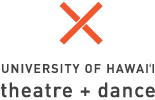


















Asian Theatre
2022-23
The Fall 2022 Asian theatre presentation, coordinated by Chinese theatre specialist Dr. Peng Xu, will be Madame Cassia. Three classes— THEA 427 (Chinese acting), THEA 420C (Chinese voice), and THEA 654 (Chinese adornment)—explore together the possibilities of staging a musical comedy using traditional Chinese tunes and of adapting a traditional Chinese play for American college theatre. Students learn the lyrics in the original language from resident kunqu artists. The presentation aims to retain the traditional Chinese acting and vocal styles while adding contemporary musical elements under the directorship of Mr. Liang Jianfeng, a distinguished music producer. Professional kunqu musicians will accompany the final performance, which will be delivered in English. Madame Cassia is based on an anonymous Chinese play, The Horse Trader’s Tale (Fanma ji 販馬記) that has been popular in China since the nineteenth century. For the English adaptation of the play, revisions have been made by Dr. Xu to accommodate student actors who are new to traditional Chinese acting. madamecassia.com/
2023-24 Plans
In the Spring of 2024, the Department of Theatre and Dance will be celebrating the 60th anniversary of the first kabuki produced at Kennedy Theatre with a commemorative performance of The Maiden Benten and the Bandits of the White Waves (Also known as Benten the Thief or Benten Kozō) – the very same play performed in the inaugural season of Kennedy Theatre in 1963! This production will be created in collaboration with master artists from Japan, notably Ichikawa Monnosuke VIII, who have graciously agreed to share their knowledge of this traditional performance art with the UH Mānoa community.
On Asian Theatre study at UHM
Widely recognized as the finest university-based center for the study and practice of Asian performance in the world, the Asian Theatre program’s international reputation attracts students from Europe, Asia, the Pacific region, and North America. We offer students an extensive Asian theatre curriculum taught by three full-time Asian Theatre faculty members, and frequent short-term guest-taught workshops in a wide variety of Asian theatre genres. The program’s centerpiece are our training residencies, in which students have the exciting opportunity to undergo long-term, intensive training in a traditional Asian theatre form with renowned master artists of the genre, who provide rigorous training in semester-long movement, voice, and instrumental courses, as well as individualized instruction in the performance of specific roles and instruments. Currently the theatres of China, Japan, and Indonesia are regularly featured in a four-year cultural rotation that often includes an additional Asian culture; frequently-taught forms are jingju, kabuki, kyogen, noh, randai, and wayang kulit. Residencies culminate in an English-language production of a representative major play, presented on the Kennedy Theatre Mainstage. These master-artist training residencies essentially “bring the field to the university,” enabling a multifaceted, integrative course of study that is truly unique. They have also produced some of the most outstanding Asian theatre productions to be seen outside their respective countries of origin. Since 1923, the Asian Theatre program has produced numerous world-premiere English-language productions of traditional and modern Chinese, Japanese, Indonesian, Malaysian, Korean, Indian and Thai theatre, as well as original, experimental works based on or influenced by research and training in specific genres of Asian theatre – some the work of Asian Theatre directing candidates.
We offer more Asian theatre courses and integrate more Asian theatre training and performance than any other program in the US, with undergraduate and graduate courses in Asian, Chinese, Japanese, and South and Southeast Asian theatre history, theory, dramatic literature, and performance practice (e.g., acting, directing, puppetry), as well as multiple individual-study options. Our award-winning faculty is widely recognized around the world for their scholarship, creative work, and residency design and direction. To date the program has produced over ninety masters and doctoral graduates in Asian theatre, who are now working in Asia, North and South America, Europe, Australia, New Zealand, and Africa, as college and university teachers and administrators, and as theatre professionals.
We believe strongly in partnering with the community and regularly present scenes and lecture-demonstrations at schools, libraries, and other community institutions; in addition, several productions have toured the neighbor islands and the U.S. mainland. Our unique English-language productions of traditional Asian theatre are appreciated in their countries of origin, as well—three jingju productions have toured China at Chinese invitation, and the randai productions, the only instances of traditional randai being performed outside of Indonesia, have been invited to tour Sumatra.
Students can focus on Asian theatre as part of graduate degrees at the MA and PhD levels, and can pursue Asian theatre training and coursework as part of their MFA studies.
Remotely Kyogen (2020-21 season)





